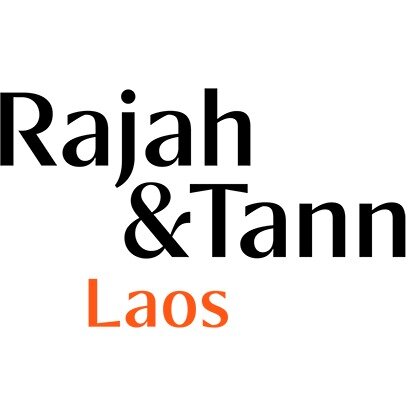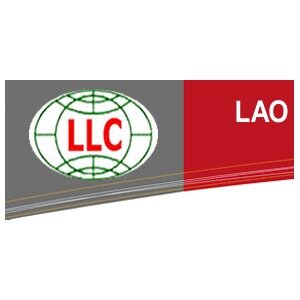Best Corporate & Commercial Lawyers in Laos
Share your needs with us, get contacted by law firms.
Free. Takes 2 min.
Or refine your search by selecting a city:
List of the best lawyers in Laos
About Corporate & Commercial Law in Laos
Corporate and commercial law in Laos governs how businesses are set up, operated, and closed, as well as how they interact with one another and with clients, suppliers, and government agencies. Over recent years, Laos has gradually modernized its legal framework to encourage domestic and foreign investments, making it vital for business owners and investors to understand the legal landscape. This area of law covers everything from company formation, mergers and acquisitions, contracts, joint ventures, compliance, foreign investment rules, intellectual property rights, consumer protection, and dispute resolution.
Why You May Need a Lawyer
Working with a qualified lawyer is beneficial in various corporate and commercial situations. Common scenarios where legal assistance is important include:
- Setting up a new business entity or joint venture in Laos
- Drafting or reviewing contracts with suppliers, clients, or partners
- Mergers, acquisitions, or transfer of business ownership
- Navigating foreign investment regulations and compliance matters
- Handling employment and labor law issues within a business
- Protecting intellectual property such as trademarks or patents
- Resolving commercial disputes or commercial litigation
- Complying with anti-corruption and anti-money laundering requirements
- Obtaining government permits and licenses
- Understanding taxation and reporting obligations
Because legal processes in Laos can be complex and are often subject to changes, expert guidance can help avoid costly mistakes and ensure your business stays compliant.
Local Laws Overview
Corporate and commercial law in Laos is shaped by several key legal instruments and local practices. Some important aspects include:
- Law on Enterprise: Defines types of business entities (sole proprietorship, partnership, limited company, public company), their formation, management, and dissolution.
- Law on Investment Promotion: Sets the rules for foreign investment, incentives, and protected sectors.
- Commercial Contracts: Although contracts do not have to be in writing in all cases, written contracts are highly recommended. Certain types, like land transactions, must be registered.
- Licensing and Registration: All businesses must obtain necessary approvals and registrations from respective ministries and authorities.
- Labor Regulations: The Labor Law governs hiring, wages, termination, and working conditions.
- Taxation: Businesses must comply with registration and tax payment obligations under the Ministry of Finance and Tax Department.
- Anti-Money Laundering: Certain sectors have reporting and compliance requirements under the Anti-Money Laundering Law.
- Dispute Resolution: Commercial disputes can be resolved before local courts or through arbitration as stipulated in contracts.
- Intellectual Property: Protection is available for trademarks, designs, and patents through registration with the Ministry of Science and Technology.
Understanding these legal obligations is crucial for operating lawfully and efficiently in Laos.
Frequently Asked Questions
What types of business entities can I establish in Laos?
The main business forms are sole proprietorship, partnership, limited company, and public company. Each has different requirements for registration, management, and liability.
Can foreigners own a company in Laos?
Yes, but foreign ownership is subject to restrictions depending on the business sector. Some industries require joint ventures with Lao nationals, while others may allow up to 100 percent foreign ownership.
What are the key steps for company registration in Laos?
Generally, you must reserve a name, prepare company documentation, register with the Ministry of Industry and Commerce, obtain sector-specific approvals, and receive a tax identification number.
Is a written contract required for business transactions?
While written contracts are not always mandatory, they are strongly recommended to protect your interests. Some agreements, like those involving real estate, must be in writing and registered.
How can I protect my intellectual property in Laos?
You can apply to register your trademarks, patents, or designs through the Department of Intellectual Property under the Ministry of Science and Technology.
What are the taxation requirements for businesses?
All businesses must register for tax purposes and comply with relevant tax laws, including corporate income tax, VAT, and other sector-specific levies.
How are commercial disputes usually resolved in Laos?
Disputes may be settled through negotiation, mediation, court litigation, or arbitration, based on the contract terms and the parties' preferences.
What ongoing compliance requirements do companies face?
Companies must maintain proper accounting records, file annual tax returns, renew licenses, and comply with labor and safety regulations.
Are there incentives for foreign investors?
Yes, the Law on Investment Promotion provides incentives such as tax holidays, reduced rates, and customs exemptions for qualifying investments in promoted sectors and locations.
Can a company freely hire foreign workers?
Hiring foreign employees is regulated. Companies must prove the necessity for foreign hires and obtain proper work permits and visas for their staff. There are also quotas for the number of foreign employees allowed.
Additional Resources
If you are seeking more information or direct assistance, consider the following resources and organizations:
- Ministry of Industry and Commerce - oversees company registration and business licensing
- Department of Investment Promotion - responsible for investment policy and assistance
- Ministry of Justice - source for regulatory information and legal reforms
- Department of Intellectual Property - manages IP registrations and enforcement
- Laos National Chamber of Commerce and Industry - supports businesses and provides guidance
- Tax Department, Ministry of Finance - for taxation inquiries and compliance
- Local law firms and consulting agencies specializing in corporate and commercial law
Next Steps
If you need legal help related to corporate or commercial matters in Laos, the following steps are recommended:
- Clearly define your legal issue or area of concern, such as company formation, contract, investment, or dispute.
- Collect all relevant documents and information before seeking advice.
- Contact a qualified local law firm or legal consultant with expertise in corporate and commercial law.
- Request an initial consultation to assess your options and understand timeframes and costs.
- Follow legal advice carefully to ensure compliance with Laos regulations and reduce risks for your business.
Acting early and seeking professional legal support can save time, prevent costly mistakes, and help you achieve your business goals in Laos.
Lawzana helps you find the best lawyers and law firms in Laos through a curated and pre-screened list of qualified legal professionals. Our platform offers rankings and detailed profiles of attorneys and law firms, allowing you to compare based on practice areas, including Corporate & Commercial, experience, and client feedback.
Each profile includes a description of the firm's areas of practice, client reviews, team members and partners, year of establishment, spoken languages, office locations, contact information, social media presence, and any published articles or resources. Most firms on our platform speak English and are experienced in both local and international legal matters.
Get a quote from top-rated law firms in Laos — quickly, securely, and without unnecessary hassle.
Disclaimer:
The information provided on this page is for general informational purposes only and does not constitute legal advice. While we strive to ensure the accuracy and relevance of the content, legal information may change over time, and interpretations of the law can vary. You should always consult with a qualified legal professional for advice specific to your situation.
We disclaim all liability for actions taken or not taken based on the content of this page. If you believe any information is incorrect or outdated, please contact us, and we will review and update it where appropriate.
Browse corporate & commercial law firms by service in Laos
Laos Attorneys in related practice areas.
Browse corporate & commercial law firms by city in Laos
Refine your search by selecting a city.












